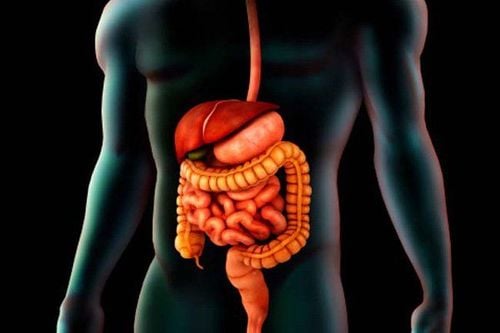This is an automatically translated article.
If you often turn off your alarm and feel moody in the morning, find a way to change to have an energetic morning. Start by figuring out the different reasons why you can't wake up in the morning and what to do about them to stay awake after waking up early.
1. Why is it difficult for you to wake up in the morning?
You have difficulty waking up in the morning most likely because you didn't get enough sleep and need to adjust your bedtime routine. If a sleep disorder or other underlying condition is causing your morning sleepiness, there are treatments available.
Difficulty waking up in the morning is not just that you love your sleep and hate the morning. Lifestyle factors, medical conditions and medications can make it difficult to wake up, these include:
Sleep disturbances such as sleepwalking, somnolence, and night terrors. Sleep apnea causes periods of stopping breathing while you are asleep. Sleep deprivation can be related to not getting quality sleep, or not getting enough sleep. Stress and anxiety can interfere with your ability to fall asleep or stay asleep. Depression . Feeling excessively sleepy during the day. Insomnia. Circadian sleep disorders can prevent you from forming regular sleep habits, such as shift sleep disturbances and sleep-wake disturbances. Certain medications, including beta blockers, some muscle relaxants, and antidepressants selectively inhibit serotonin reuptake. Chronic pain conditions can make it difficult to get a good night's sleep.

Có rất nhiều nguyên do khiến bạn khó thức dậy vào buổi sáng.
2. How to wake up early and wake up after waking up?
There are several things you can do to help you stay awake after waking up. If an underlying condition is causing you to be excessively sleepy or drowsy in the morning, you may need a combination of home remedies and medical treatment.
The following are ways to wake up early and treatments that can help you sleep better and wake up better.
2.1. Sleep Schedule Going to bed and waking up at the same time every day is a must if you want to have a good sleep schedule and get in the habit of waking up early. Figure out how much sleep you need, usually 7 to 9 hours a night, and try to go to bed early enough that you wake up feeling refreshed.
Stick to a sleep schedule every day, including days off, and your body will eventually start to wake up naturally.
2.2. Create a good bedtime routine You may be sabotaging your efforts to get up early without even realizing it. Drinking caffeine late in the day and using blue-light devices before bed can keep you from falling asleep.
Avoid activities that have been shown to interfere with your circadian rhythm and cause insomnia, including:
Looking at electronic screens, such as your laptop or phone. Bright lights at night can lower your melatonin levels (which is a hormone that helps you feel sleepy). The fix: Lower the brightness of the lights in your home and turn off all screens and tech tools at least an hour before you plan to start. Drink caffeine within six hours of bedtime. Take a nap or spend too much time in bed during the day. Drink before bed: Alcohol makes you feel drowsy. However, it can also make it harder for you to fall asleep and can make you feel groggy in the morning. If you can't give up alcohol, have a glass and drink it with dinner, or at least 2 to 3 hours before bed. A relaxing evening makes it easier to fall asleep. Avoid stressors like email and harsh conversations with family members at least an hour before bedtime. To get into a sleepy mood, you can meditate, stretch, take a warm bath or shower, or read a book in a dimly-lit room.
If you sleep at least 7 hours a night but are still tired, see your doctor. A health problem or sleep disorder such as sleep apnea may be to blame.
2.3. Move your snooze device away to avoid hitting snooze Unless you have an hour or two left to sleep, hitting the snooze button won't really help you get tired. But there's another reason to get up when you first hear the annoying beep, and that's you have to get up to turn it off.
You are tempted by the snooze button and “just a few more minutes”, going back to sleep after waking up is interrupted sleep. According to research, disrupted sleep will increase feelings of sleepiness during the day and tossing at night, reduce work performance and make you feel tired.
If you're used to hitting the snooze again, try moving the alarm out of bed so you have to get up to turn it off.
When you wake up and go to bed at the same time every day, you keep your internal body clock in sync. That makes you more alert in the morning and drowsy at night.
2.4. Better Diet Eating a healthy diet will give you an energy boost and help you sleep better. On the other hand, foods that are often considered unhealthy can make you feel sluggish and drain your energy.
Aim for a balanced diet full of foods that boost your energy, like fruits and vegetables, whole grains, and foods rich in omega-3 fatty acids.
You have no appetite? Anyway, try to eat a small meal in the morning. Even a small snack, such as an egg with a piece of whole grain toast or a cup of yogurt with berries, gives your body the energy it needs to function. Breakfast also helps you focus. It can even keep your body clock on track.

Thực hiện một chế độ ăn uống lành mạnh sẽ giúp bạn tăng năng lượng và ngủ ngon hơn.
2.5. Exercise regularly Exercise has been shown to improve sleep and conditions that can cause insomnia and excessive sleepiness, such as anxiety and depression. It also increases energy levels by reducing fatigue, including in people with chronic fatigue.
Jumping rope or a brisk walk can help you pump blood and restore the nervous system. You will feel more alert momentarily and for several hours afterward. Practice a few hours before going to bed. Practicing yoga has also been shown to soothe insomnia.
2.6. Enjoying daylight Sunlight helps regulate your circadian rhythm and improve your sleep. If you get some morning sun, it can help improve your mood and energy levels for the rest of the day. Open the curtains as soon as you wake up or go for a walk outside.
You can also try sleeping with the blinds open to wake up early in the morning, as long as it's not too bright outside your bedroom window at night. If it's overcast, just turn on the lights or use an alarm clock.
If you struggle with brain fog or suffer from seasonal affective disorder or depression, try a lightbox (or sunlamp). It can lift your mood and help you feel more alert.
2.7. Enjoy a real morning To limit your urge to stay in the blanket, plan something to look forward to each morning. You can read your favorite website with a delicious breakfast or go for a walk in a beautiful park. Anything that excites you or brings you joy will help wake up your brain and make you less drowsy.
Sip on a drink containing caffeine. Caffeine pumps brain chemicals like serotonin and dopamine. They boost your mood, boost your energy levels, and help you focus.
If you don't like coffee, choose a cup of black or green tea, which has caffeine along with other healthy compounds.
2.8. Sleep studies If you can't wake up in the morning after trying other methods or notice the warning signs of a sleep disorder, talk to your doctor for a referral to a sleep specialist. sleep.
Taking part in a sleep study can help your doctor diagnose a sleep disorder that may be causing your morning fatigue.
If you've been diagnosed with a sleep disorder, such as chronic insomnia or restless legs syndrome (RLS), treatment can help you sleep and wake up better. Treatment will depend on the specific sleep disorder you have and may include:
Prescription drugs such as sleep aids or medications for sleep disorders. Melatonin: This hormone helps your system get ready for sleep. It also plays a role in controlling your body clock. If you have trouble falling asleep or you fall asleep without a schedule because of travel or a new routine, a melatonin supplement can help. Stick to a small dose (0.3 - 1 milligram) taken one hour before bedtime. And always talk to your doctor before taking any new medication.
Therapeutic breathing apparatus for obstructive sleep apnea. Behavioral therapy. Surgical treatment for obstructive sleep apnea. Difficulty waking up in the morning is just one sign that you're not getting enough sleep. Here are some other symptoms:
Excessive yawning. Irritability. Lack of motivation. Tired. Sleeping too much during the day. Brain fog syndrome. Increase taste. You can develop the habit of waking up at the same time in the morning. A few changes to your routine can help you get rid of morning fatigue so you can wake up early and wake up refreshed. If you're concerned that you have a sleep disorder or other medical condition that may be contributing to your morning fatigue, see your doctor.
Don't forget to follow the website: Vinmec.com regularly to update many other useful information.
Reference articles: byrdie.com, webmd.com, healthline.com













